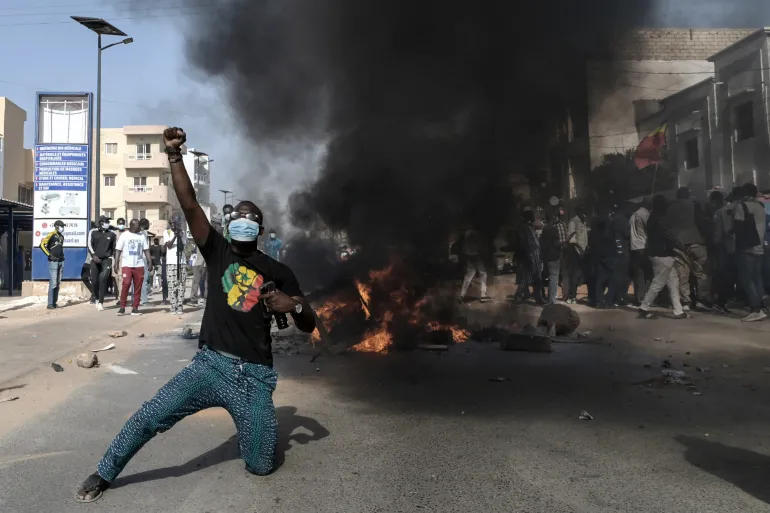The winner between Javier Milei and Sérgio Massa will have to contend with mounting debt, skyrocketing inflation, and deepening poverty.
Prior to Sunday’s Argentine presidential election, opinion surveys are evenly matched. Hard-right libertarian Javier Milei will compete against Sérgio Massa, the centrist candidate from the ruling Peronist alliance, in the run-off election.
The incumbent Finance Minister, Massa, received 37 percent of the vote in the October first-round election. Meanwhile, barely thirty percent of voters were persuaded by Milei. To win in the first round, a candidate has to receive forty-five percent of the vote.
Many political pollsters were taken aback by last month’s result, considering that Massa is in charge of an economy that has a 142.7 percent inflation rate and seething resentment at Argentina’s Peronist elite.
In addition to strategic welfare disbursements, Massa’s first triumph was propelled by an effective advertising campaign that threatened utility rate hikes should Milei—who has promised to eliminate state subsidies—win.
Former TV personality Milei, a political outsider who is now a legislator, has been compared to Donald Trump. Milei and his staunch running partner Victoria Villarruel have minimized the horrors of Argentina’s military dictatorship.
Years of anger with the economy have fueled his achievement. Ten percent of Argentines are already living in poverty, and the country’s economy is heading into its sixth recession in a row. Voters’ top issue, inflation, is triple digits and still growing.
“The cost of necessities has increased dramatically,” remarked Buenos Aires cab driver Jorge Lopez. The more money I make, the less it can buy me. Simply put, there isn’t enough, and making ends meet is becoming more difficult.
Nevertheless, Miles’s rhetoric has caused rifts. His disparaging characterization of the Argentian Pope as “a leftist son of a bitch” infuriated moderate voters in a nation where Roman Catholicism makes up two thirds of the populace. Additionally, he has supported the selling of human organs.
Despite serving in a left-leaning Peronist government, Massa is a representative of the party’s more moderate flank.
For many years, the Peronists—a populist general named Juan Perón—have dominated Argentine politics. They initially came to power in 1946. Peronism now is a hodgepodge of economic policies, from subsidies for necessities to state-led industrial development.
Massa is seen as a skilled negotiator who can work across party lines. He was successful in negotiating a $7.5 billion payment from the International Monetary Fund (IMF) in August.
The size and function of the state are only one example of the many economic issues on which the two candidates disagree.
‘Likely to be another debt restructure’
Undoubtedly, a lot of these policies will probably be changed once a new administration takes power on December 10. Massa knows he will need to impose austerity measures. He’s now discussing a 1% GDP budget surplus for the next year, according to Bortz.
Argentina experienced a budget deficit of 2.4 percent of GDP in the previous year, which occurs when spending surpasses income.
Argentina still owes $65 billion to foreign bondholders from debt that was restructured in 2020, and around $43 billion to the IMF. In the future, a lot of duties fall into 2024 and 2025. Bortz continued, “Massa has alluded to gradual fiscal consolidation to repay these debts.”
In contrast, Milei has promised to cut government expenditure by a staggering 15% of GDP. His plans for austerity would primarily target the elimination of utility subsidies, such as those for gas and electricity. He has also made references to cutting back on public health spending and privatizing state-owned businesses.
Bortz stated, “It is evident that this radical program alarmed some voters.” Politically speaking, Massa’s idea is more realistic considering Peronism’s backing in Congress. Even if he prevails, though, he would be left with extremely little savings and no access to global finance markets.
“Massa will follow the Peronist path, trying to reduce subsidies without jeopardizing the welfare state,” predicts Pablo Bortz, a University of San Martín macroeconomics expert.
Massa, who is still in control of state finances, made significant expenditures before to the election in October. In addition to increasing income tax exemptions and increasing handouts to unofficial workers, he paid retirees $100 at the official exchange rate, which is 2.5 times cheaper than the unofficial rate on the black market.
Since the peso experienced sharp devaluations recently, the Central Bank of Argentina (BCRA) has depleted its foreign exchange reserves in order to strengthen the currency. Consequently, this has weakened the government’s capacity to settle its debt.
“Regardless of the outcome, I believe there will certainly be another debt restructuring next year. The government will need to enact economic reforms and austerity measures in order to put the debt back on a sustainable track, which may lead to demonstrations. Even so, Bortz continued, “they’ll be much tamer if Massa wins.”
“The cost is very high.”
Voters like Malena Pesce, a teacher in San Isidro, a suburb of the capital of Argentina, are concerned about inflation and the cost of living in the run-up to the election.
“It limits how much food I can purchase because prices are so high.” I’ve also had to reduce the amount of time I spend with my kids on leisure activities like going out to eat or the movies,” she said.
Argentina has historically experienced inflation, which averaged 50% between 2018 and 2022. There are a few reasons for the further price increase that has occurred since then.
The peso fell in value due to the war in Ukraine and the US Federal Reserve’s consequent tightening policy, raising the cost of imports. The demand for pesos was further curtailed when a severe drought earlier this year destroyed millions of acres of grain, wheat, and soy.
Argentina has a track record of mismanaging its finances. Since gaining independence in 1816, the government has nine times missed payments on its debt. Authorities have occasionally turned to creating money to cover the deficit during stressful times, which can increase inflation.
Massa was in charge of central banks creating money to make up for deficits in the budget. Milei has stated that “eliminating the central bank is essential” in reference to this matter. He believes the BCRA is state-captured and serves to fuel inflation.
Matias Vernengo, a former BCRA employee, told Al Jazeera that Milei’s proposal to abolish the central bank is extremely dangerous and would guarantee Argentina’s loss of monetary power.
The self-described “anarcho-capitalist” has suggested dollarizing Argentina, making the US dollar the only acceptable form of legal cash, in order to implement his plan. He has called for doing away with the peso, calling it worth less than “excrement.”
However, Vernengo stated that such a step would “rescind the ability to borrow in our own currency and tying us to the US money supply… which would straight-jacket our ability to pursue expansionary growth policies, which Argentina needs.”
In order to serve as a liquidity cushion, dollarization would also need a stockpile of dollars. Removing the peso has the potential of causing a real currency crash, nervousness in the banking sector, and civil unrest due to the BCRA’s declining reserves. It may turn out badly,” he continued.
Therefore, there is a greater chance that Massa’s plan to cut the nation’s deficit and central bank financing will succeed. Nevertheless, he’ll need good fortune to lower costs. It would be beneficial if the US Federal Reserve cut interest rates in the upcoming year, according to Vernengo.
This election, the most discussed policy topic has been monetary policy. “It is very difficult to control inflation in Argentina, and regardless of the winner, I anticipate further price increases. Vernengo said, “That said, if Milei gets his way, we could tip into hyperinflation.”
The instructor, Pesce, remained upbeat: “Despite everything, I am still optimistic about Argentina.” In order to satisfy the necessities of a respectable life, I hope that working people will eventually be able to purchase food, make ends meet, and perhaps even take a vacation.
SOURCE:-ALJAZEERA







